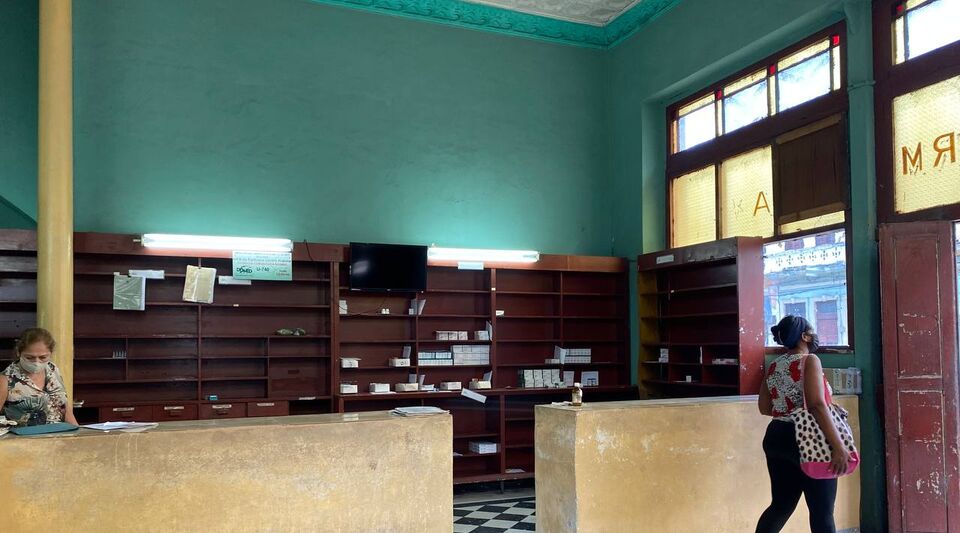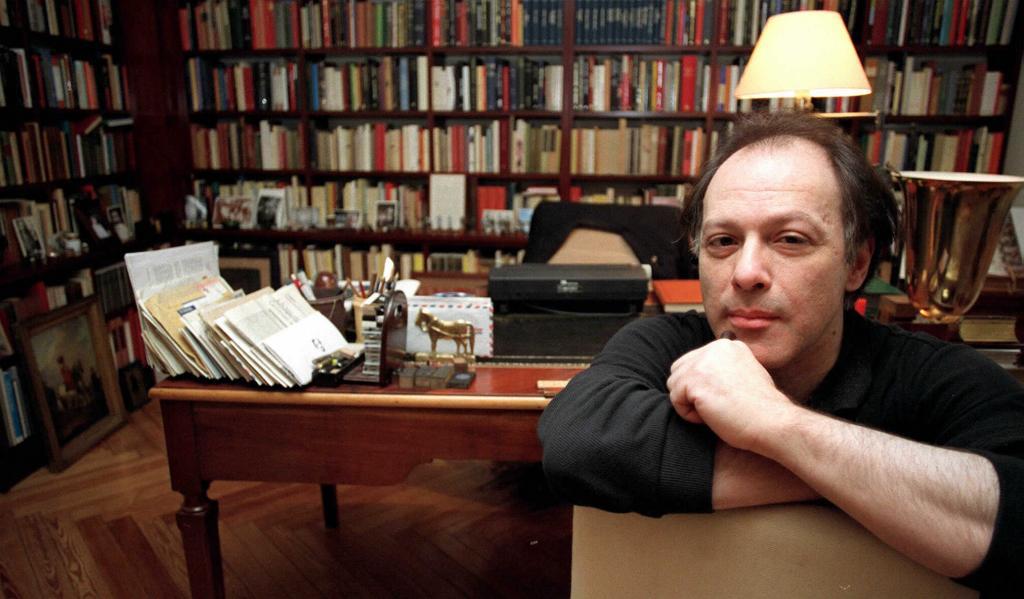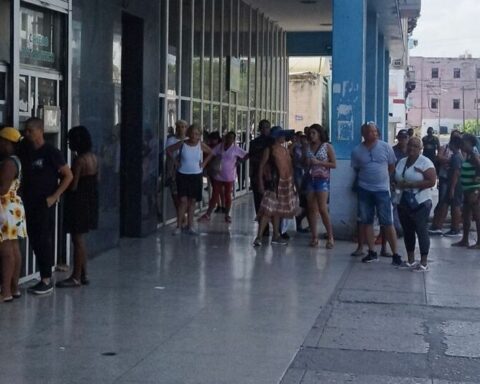The directors of BioCubaFarma regretted, this Wednesday, that most of the 200 million dollars in profit supposedly obtained from the sale abroad of the Soberana and Abdala vaccines have not been collected. In 2021, they assured, that state company spent half of its resources on the production of drugs against covid-19 and has not yet been able to recover its investment.
“In the last months of last year we managed to export a good amount of vaccines, for more than 200 million dollars. Today, nine months later, we have not been able to receive much of that income, because there is no way for the money to arrive here. This is income that was planned to buy medicines,” said Eduardo Martínez Díaz, president of the pharmaceutical business group, on Wednesday.
The doctor did not detail to which countries the vaccines were sold or for what amount the unit was sold, although it is known that Vietnam bought five million doses. Mexico has announced the acquisition of nine million from Abdala, which would not yet enter the account. The Island also exported Soberana to Iran, a country with which it jointly developed the serum, and Venezuela, as well as a small batch to other Central American countries. Finally, Nicaragua bought seven million doses at a unit price of seven dollars, according to a document published by the newspaper Confidential which referred to the request for a loan from the World Bank to satisfy the amount.
The origin of the “withheld” money, according to the Cuban authorities, was not revealed, although the president of BioCubaFarma indicated that the banks refuse to transfer money to the island due to the embargo
The origin of the “withheld” money, according to the Cuban authorities, was not revealed, although the president of BioCubaFarma indicated that the banks refuse to transfer money to the Island due to the embargo and the inclusion in the list of countries that sponsor terrorism.
This is another of the reasons that the official pointed out as a fundamental cause for the shortage of medicines on the island, detailed this Wednesday in the Mesa Redonda program.
Martínez Díaz explained that BioCubaFarma manufactures 996 products, of which 369 belong to the basic table (made up of a total of 627). This task saves the country, he calculated, 1,500 million dollars. However, the accounts remain unanswered, because that production is in serious trouble.
The situation, according to the pharmaceutical directors invited last night, has been aggravated by the shortage and the increase in the prices of raw materials and logistics in the international market, which also affects, they affirmed, other countries, such as Mexico and Brazil. In addition, they assure that the embargo makes some raw materials more expensive due to the distance from which they must be brought, although that explanation is misleading since the US also imports from China and India those same active ingredients that it uses in its pharmaceutical industry.
Among the missing drugs, the list provided was extensive. Antihypertensives, which are taken by up to three million Cubans, antiarrhythmics, cytostatics, contraceptives, antibiotics, antiparasitics, psychoactive drugs and antiallergics were cited.
The situation is such that the vice president of BioCubaFarma, Tania Urquiza Rodríguez, indicated that priority levels have been established for the 369 medicines manufactured by her pharmacist (of the rest occupied by MediSol): 262 with level 1; 81 with level 2; and 26 with 3.
“However, the situation is so complex that we have had to establish a priority within priority 1, which is the majority of drugs. We are giving priority to hemodialysis, because it is a drug that, if the patient who he needs dialysis, he doesn’t do it, he loses his life,” said the official, who added serum, dextrose, sodium chloride, Ringer’s with lactate and products with a control card to the list, which are the ones that guarantee treatment of chronic diseases. “To produce these 63 drugs, 43 million dollars a year are needed”, about 10 or 12 quarterly, and if a component is missing, manufacturing is impossible.
If so far the situation has been complex, last night it became clear that it can still get much worse. Urquiza Rodríguez said that there are almost six million people registered in cards with one of the 12 most widely used medications in Cuba (five antihypertensives, two diuretics, one anticoagulant, metformin for diabetes, isosorbide dinitrate for heart failure, and two aerosols for asthma: salbutamol and fluticasone).
“An attempt has been made to maintain the stability of these 12 drugs during the year, but there is concern that by the end of the year the raw materials will run out”
“An attempt has been made to maintain the stability of these 12 medicines during the year, but there is concern that by the end of the year the raw materials will run out. We are working intensely with the suppliers to guarantee the arrival of the raw materials in the country,” he assured.
Meanwhile, the biopharmaceutical industry continues to embark on a new research task: the dengue vaccine. Eduardo Martínez explained that the process has already lasted ten years. “It’s a very complex vaccine and today there really isn’t an effective and safe immunogen, plus there are four dengue serotypes,” he said.
Cuba is working on a serum aimed at inducing a cellular response against one of the variants, although it did not specify which one. “We have a vaccine possibility that we plan to move forward with fast, although we don’t yet have a forecast of when we might be testing it in humans, but it’s moving fast,” she said.
The only approved vaccine against dengue, with the commercial name of Dengvaxia and manufactured by the French Sanofi Pasteur, began to be sold in 2021 after approvals in 2018 and 2019, by international regulators, including the US and Europe. The serum is only recommended in countries with a high prevalence of the disease or people who have previously had it, and it works for the four variants, but it is not available in Cuba.
________________________
Collaborate with our work:
The team of 14ymedio is committed to doing serious journalism that reflects the reality of deep Cuba. Thank you for joining us on this long road. We invite you to continue supporting us, but this time becoming a member of our journal. Together we can continue transforming journalism in Cuba.








